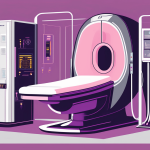Navigating through prostate cancer treatment can seem daunting, but recent advancements have significantly improved patient outcomes. This comprehensive guide dives into the complexities of prostate cancer, detailing traditional therapies like surgery, radiation, and hormone therapy, while also highlighting groundbreaking treatments such as immunotherapy and targeted therapy. With a focus on the importance of early detection and the promising future of personalized medicine, this guide is a beacon of hope, illustrating the power of modern medicine to combat this prevalent disease. Whether you’re newly diagnosed or seeking the latest in treatment options, this guide provides the insights needed to make informed decisions about your health journey.
Prostate cancer is a prevalent form of cancer that affects men worldwide. It is crucial to understand this disease and the available treatment options to ensure the best possible outcome for those diagnosed. In recent years, significant advancements have been made in prostate cancer therapy, offering new hope and improved outcomes for patients. This comprehensive guide will explore the various aspects of prostate cancer and shed light on the latest developments in treatment options.
Understanding Prostate Cancer
Prostate cancer occurs when abnormal cells within the prostate gland start to grow and divide rapidly, forming a tumor. This tumor can then invade surrounding tissues and spread to other parts of the body, if left untreated. It is important for individuals to be aware of the basics of prostate cancer to identify potential risks and symptoms.
The Basics of Prostate Cancer
The prostate gland is a small walnut-shaped organ located below the bladder and in front of the rectum. It plays a crucial role in producing seminal fluid, which nourishes and transports sperm. Prostate cancer typically develops in older men and is one of the most common types of cancer in males.
As men age, the risk of developing prostate cancer increases. This is due to the fact that the prostate gland undergoes changes over time, which can lead to the development of abnormal cells. While the exact cause of prostate cancer is unknown, researchers believe that a combination of genetic and environmental factors play a role in its development.
Early-stage prostate cancer may not cause any noticeable symptoms. However, as the disease progresses, symptoms such as frequent urination, difficulty in starting or stopping urination, blood in urine or semen, and erectile dysfunction may arise. These symptoms can be alarming and may indicate the presence of prostate cancer. If you experience any of these symptoms, it is imperative to consult your healthcare professional for further evaluation and diagnosis.
Risk Factors and Symptoms
Several factors can increase your risk of developing prostate cancer. Age is a significant risk factor, with the chances of developing prostate cancer increasing significantly after the age of 50. This is why regular prostate cancer screenings are recommended for men in this age group.
In addition to age, having a family history of prostate cancer can also increase your risk. If your father, brother, or any other close male relative has had prostate cancer, your chances of developing the disease are higher. This suggests that there may be a genetic component to prostate cancer.
Other risk factors for prostate cancer include race and certain genetic mutations. African American men have a higher incidence of prostate cancer compared to men of other races. Additionally, certain genetic mutations, such as mutations in the BRCA1 and BRCA2 genes, have been associated with an increased risk of developing prostate cancer.
It is important to note that having one or more risk factors does not necessarily mean you will develop prostate cancer. However, awareness is key, and regular check-ups and screenings are essential for early detection and prompt treatment. By staying informed about the basics of prostate cancer and understanding the risk factors and symptoms, you can take proactive steps to protect your health.
Traditional Prostate Cancer Therapies
Prostate cancer is a complex disease that has been battled with various treatment options throughout the years. These treatment options include surgery, radiation therapy, and hormone therapy, each with their own unique approach to combating the disease.
Surgery and Radiation Therapy
When it comes to early-stage prostate cancer, surgery is often recommended as a primary treatment option. This procedure involves the removal of the prostate gland, which is responsible for producing seminal fluid. By removing the gland, the cancerous cells are eliminated, preventing further growth and spread of the disease.
There are different techniques used in prostate cancer surgery, including traditional open surgery and minimally invasive procedures. Laparoscopic surgery, for example, involves making small incisions and using a camera and specialized instruments to remove the prostate gland. Robotic-assisted surgery takes this a step further by utilizing robotic arms controlled by a surgeon, providing enhanced precision and dexterity.
Radiation therapy, on the other hand, utilizes high-energy beams to target and destroy cancer cells. This treatment option can be administered externally or internally, depending on the individual’s specific case. External beam radiation therapy involves directing radiation beams from outside the body towards the prostate gland, effectively killing cancer cells. Internal radiation therapy, also known as brachytherapy, involves placing radioactive seeds directly into the prostate gland, delivering a targeted dose of radiation to the tumor.
Both surgery and radiation therapy have proven to be effective in treating prostate cancer, with the choice between the two depending on factors such as the stage of the disease, the patient’s overall health, and their personal preferences.
Hormone Therapy
Another approach to treating prostate cancer is hormone therapy, also known as androgen deprivation therapy. This therapy aims to reduce the levels of male hormones, such as testosterone, in the body. Prostate cancer cells rely on these hormones to grow and thrive, so by limiting their production, the growth of tumors can be slowed down and the disease can be controlled.
Hormone therapy can be administered through medications or surgical procedures. Medications, such as luteinizing hormone-releasing hormone (LHRH) agonists, work by signaling the body to stop producing testosterone. Anti-androgens, on the other hand, block the effects of testosterone on cancer cells. Surgical procedures, such as orchiectomy, involve the removal of the testicles, which are the main source of testosterone production in the body.
Hormone therapy is often used in combination with other treatments, such as surgery or radiation therapy, to maximize the effectiveness of the overall treatment plan. It can be used as a primary treatment option for advanced or metastatic prostate cancer, or as adjuvant therapy to prevent recurrence after initial treatment.
Prostate cancer is a complex disease that requires a personalized treatment approach. While surgery, radiation therapy, and hormone therapy are traditional treatment options, ongoing research and advancements in medical technology continue to expand the range of available therapies. It is important for individuals diagnosed with prostate cancer to consult with their healthcare team to determine the most suitable treatment plan for their specific case.
Recent Advancements in Prostate Cancer Therapy
Sustained progress has been made in prostate cancer therapy, offering new treatment avenues and improved effectiveness. Let’s explore two of the most significant recent advancements: immunotherapy and targeted therapy.
Immunotherapy and Prostate Cancer
Immunotherapy aims to enhance the body’s immune system to recognize and destroy cancer cells. This treatment approach has shown promising results in several cancers, including prostate cancer. Immunotherapy drugs help activate the immune system, enabling it to target and attack cancer cells. This new frontier in treatment offers hope for patients who have not responded well to other therapies.
Targeted Therapy: A New Approach
Targeted therapy is another innovative treatment option that focuses on specific gene mutations or proteins present in cancer cells. By targeting these specific characteristics, targeted therapy drugs disrupt the growth and spread of cancer cells more effectively. Targeted therapy can be used alone or in combination with other treatments, offering individualized approaches to prostate cancer treatment.
The Role of Genetics in Prostate Cancer Treatment
Understanding the genetic factors associated with prostate cancer opens doors to personalized treatment plans. Genetic testing plays a crucial role in identifying genetic mutations that may contribute to an individual’s likelihood of developing prostate cancer.
Genetic Testing for Prostate Cancer
Genetic testing involves analyzing an individual’s DNA to identify specific gene mutations linked to prostate cancer. This information can provide insights into the risk of developing the disease and guide treatment decisions. Through genetic testing, healthcare professionals can determine if certain targeted therapies or clinical trials may be more effective for a particular patient.
Personalized Medicine and Prostate Cancer
Personalized medicine takes into account an individual’s genetic information, lifestyle, and other factors to tailor treatment plans accordingly. By considering each patient’s unique characteristics, personalized medicine aims to optimize the effectiveness of therapies and minimize side effects.
Future Perspectives in Prostate Cancer Therapy
The field of prostate cancer therapy continues to evolve, paving the way for future advancements and improved outcomes. Let’s explore two exciting areas of development: emerging therapies and the impact of technology.
Emerging Therapies on the Horizon
Ongoing research and clinical trials are exploring novel treatment options for prostate cancer. Some promising emerging therapies include gene therapies, which aim to correct or replace faulty genes, and immunotherapies tailored to individual patients’ specific tumor characteristics. These emerging therapies hold immense potential in revolutionizing prostate cancer treatment in the coming years.
The Impact of Technology on Prostate Cancer Treatment
Technological advancements have played a significant role in improving prostate cancer treatment. From advanced imaging techniques to robotic-assisted surgery, technology has enhanced the precision, outcomes, and quality of life for patients. Additionally, developments in telemedicine and remote monitoring provide greater accessibility to specialized care, especially for those in remote or underserved areas.
In conclusion, advancements in prostate cancer therapy have brought new hope and improved outcomes for individuals diagnosed with this disease. Understanding the basics, conventional treatment options, and recent developments in prostate cancer therapy is crucial for informed decision-making and ensuring the best possible care. Additionally, the role of genetics and personalized medicine, along with future perspectives and emerging therapies, pave the way for a brighter future in prostate cancer treatment. Remember, early detection and timely intervention remain key in combating this disease. Stay informed, consult your healthcare professional, and let’s continue on this journey towards better prostate cancer therapy.






